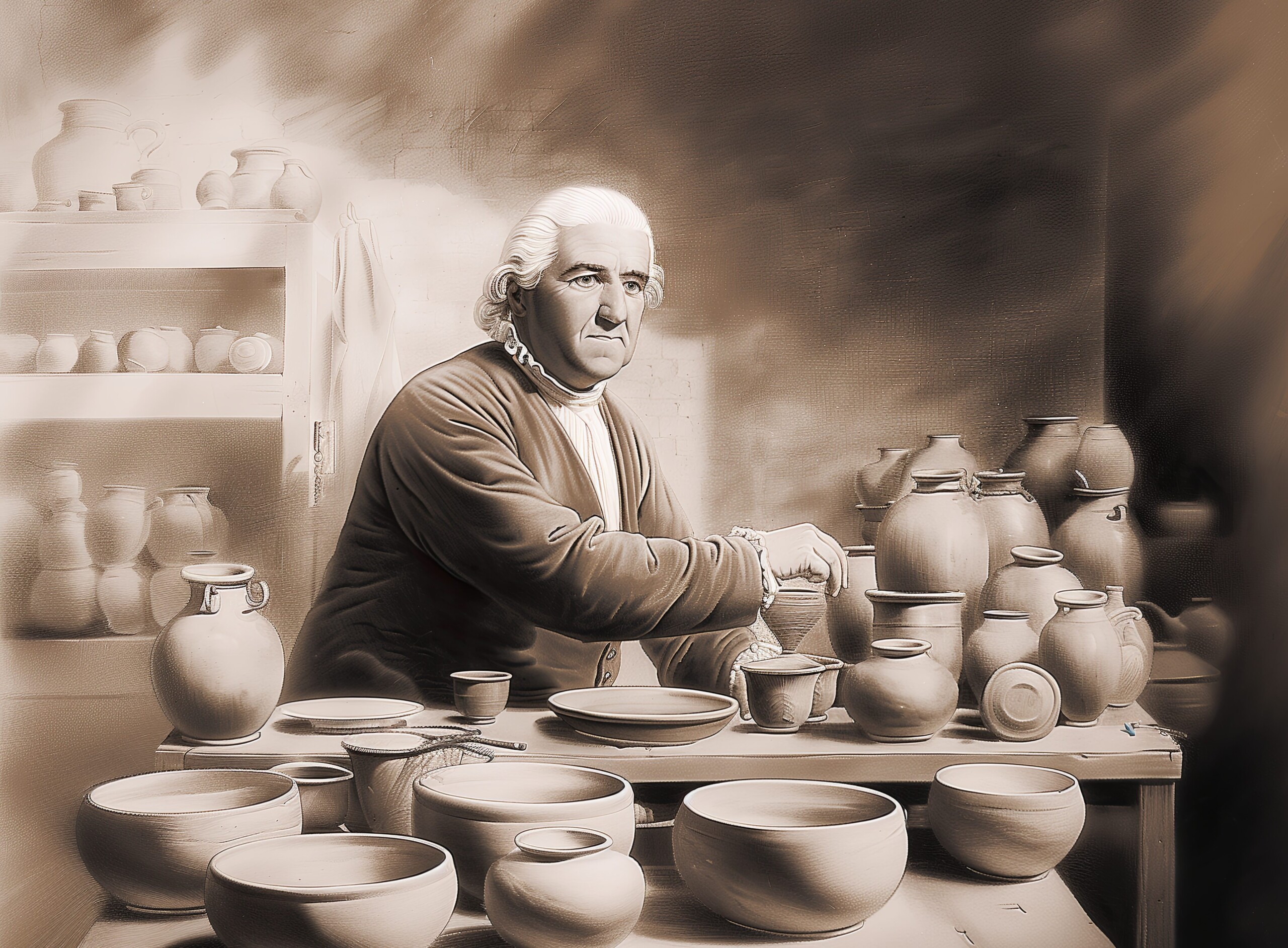I put on a record today.
Well, I didn’t put on a record, so much as I put on a . . . well, a what? It wasn’t a vinyl plate or a spool of tape or even a piece of shiny circular plastic. Indeed, whatever physical medium was being used to store the music I was listening to wasn’t available to me at all. It simply came in through the air—like lightning. From the comfort of my chair, I picked up my iPhone, chose the album I wanted from the million-strong list that loaded instantly before my eyes, and directed the sound to the speakers in my vicinity, all of which started to play my choice within a few milliseconds. And then, when I tired of it, I shushed it with my voice.
I think about this sometimes when I hear people complain that the bright technological future we were all promised has steadfastly failed to appear. How, I wonder, would I even begin to explain Spotify and Sonos to my grandfather, who died in 1994? A compact disc could be comprehended by the elderly as a better vinyl record, much as the Space Shuttle could be comprehended as a faster airplane. But streaming? If my grandfather came back today, where would I start?
“Okay, so I’m using my telephone, which isn’t really a telephone so much as a supercomputer-cum-Library-of-Alexandria-cum-high-definition-movie-studio, to send a wireless signal to the magical speakers in my home, which, upon my request, will contact a set of servers 3,000 miles away in San Francisco, and request instant access to the closest digital copy of—”
“Wait, what’s a server?”
“—hold on—to the closest digital copy of one of millions of high-quality songs to which I have full and unlimited access, but neither own nor have to store, and—”
It boggles the mind.
It may be tempting to regard this example as a mere bauble or trinket, or even as a sign of decadence. But to do so would represent a disastrous miscalculation of its significance. It is true that some of our advances have slowed since the 1970s. We do not go to the moon on a regular basis, despite the promises of the Apollo program; transatlantic travel has become slower, rather than faster—R.I.P. Concorde; our cars essentially still use the same engines as they always have; and life expectancy is no longer leaping forward. But it is also true that, unlike then, we now enjoy a magnificent worldwide communications network that offers the sum of human knowledge in the blink of an eye and is open to anybody who wishes to join it. If that is “all” we’ve done in the last four decades, I think we should congratulate ourselves rather heartily.
Forget my grandfather for a moment and imagine explaining that to almost any literate person in human history. What do we imagine his reaction would have been? Do we think he would have said, “That sounds like stagnation to me”? Or do we think he would have said, “It sounds as if you have reached the promised land, I hope you are extremely grateful for the bounties you have inherited.” If not the latter, he’d be a fool.
From the desk on which I am writing these words, I have access to all of the great works in history: every song, every play, every book, every poem, every movie, every pamphlet, every piece of art. I can find every translation of the Bible that has ever been compiled and put them side by side for comparison. I can read the missives that were sent during the American Revolution, and examine the patents for the first steam engine, and listen to all of Winston Churchill’s speeches between 1939 and 1945. The world’s recipes are available to me without exception, and, if I desire, I can watch a cornucopia of free-to-use instructional videos in which experts show me how to cook them. At no cost or inconvenience, I can learn how to fix my sink or change my car’s tires or troubleshoot my dishwasher. If I want to know where the “panda ant” lives (Chile), to which genus it belongs (Euspinolia), how long it is (up to 8 millimeters), and whether it’s actually an ant (it’s not, it’s a wasp), I can find this information in seconds. What was on the front page of the Key West Citizen on June 2, 1943? Easy: “City Council Takes Up Incinerator Project with Representative of FWA.” Nearly 2,000 years ago, Pliny the Elder wondered if it might be a good idea to collect all of human knowledge in one place, available to all. That dream has become a reality—and we got to live when it happened. I’d say that’s pretty darn good.
The airplane annihilated distance; the smartphone has annihilated geography altogether. Provided that I have a stable connection to the Internet, it takes me the same amount of time to send a digital photograph to Delhi as it does for me to send it to a person in the house next door. On Saturday mornings I can sit and watch the same soccer games, broadcast live from England, that my dad is watching in England and text him about the developments in real time, as if I were sitting next to him. If I need to keep an eye on the news, it makes no difference whether I am sitting in the headquarters of Reuters or on a beach in Australia. Wherever I am, the information flow is the same. Except by design, there is no longer any such thing as “out of the loop.” As an achievement, this is monumental.
The “Spaceship Earth” attraction at Disney’s Experimental Prototype Community of Tomorrow tells the story of human communication from the days of the Neanderthal to the invention of the computer. I have wondered at times what Disney will substantively add to this story when it comes time to update the show, and I have come to conclude that the answer is almost certainly nothing. One cannot improve on instant worldwide communication that is accessible to every person and in every place. One can tinker around the edges to upgrade its speed, its reliability, its quality, and its durability, one can add some security into the mix for good measure, but, give or take, this is a problem that has now been solved. As the Phoenicians solved the alphabet problem, so have our contemporary engineers solved the transmission problem. The dream has arrived.
Not everyone appreciates this, of course, which is why it is customary for the complaint I am addressing to be amended slightly, from “technology has stagnated” to “technology is frivolously used and may even be bad for us.” But, while the latter proposition is arguably true, it concedes my premise that something dramatic has changed in the way in which we live. It is indeed entirely possible that the volume and speed of information that the I.T. revolution has ushered in have had a destructive effect on individuals or on society. It is possible, too, that, while the benefits are immense, most people choose not to take advantage of them. I would not be the first to lament that the first thing users seem to do with their access to the Internet is to begin arguing with strangers. And yet to contend that the abuse of the personal computer in some way undermines the value of the personal computer would be equivalent to contending that the use of the airplane for bombing renders the significance of its invention questionable.
I suspect that some of our disappointment is the fault of comic books. Riffle through any Bumper Sci-Fi Book for Boys!–style volume that was published between the 1920s and the 1960s and you will see that the physical breakthroughs that were anticipated—spacesuits, rocket ships, jetpacks, flying cars, laser guns, etc.—are featured prominently and enthusiastically, while the less tangible mass communications that were anticipated are set quietly in the background, as if they are inevitable. In story after story, the astronauts communicate from the planet Zog in an instant using video chat, and yet that, evidently, is not the exciting part. The exciting part is that they are on Zog.
I must confess that I do not understand why, for it is not at all obvious to me that exploring Zog is more useful than inventing Wikipedia, or that the ability to get to Zog would represent a greater leap forward than the ability to talk to our friends from it. Certainly, Zog may have some interesting rocks, and the technical feat of sending men there and returning them safely to Earth would be worth celebrating. (I do tend to tear up watching the original Moon landing.) But in comparison to a breakthrough that allows me to enjoy the words, faces, music, food, counsel, art, and research of every other human being on Earth, whether living or dead, it would pale. I have that. In my pocket.
Stagnation? Nope. Renaissance, more like.
This originally appeared in National Review.



